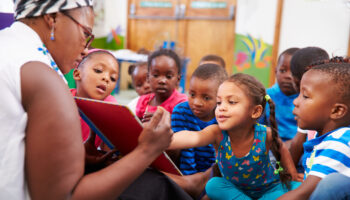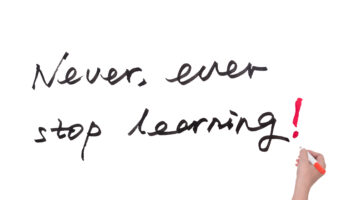By Rochelle Deane
The way you communicate with children teaches them how to communicate with others because children learn to communicate through everyday interactions and a language rich environment. Surrounding children with a rich language environment is important beginning in infancy. Talking, singing, reading, and offering many opportunities throughout their day, across all activities can help set the foundation for children to become successful readers and communicators. Ways this can be done in early childhood is by:
Talking – Encourages communication, curiosity, social skills, and boosts self-esteem. It is a great way to build their confidence to express themselves with words. Eventually, helping them feel valued, important, and respected.
Singing – Teaching songs can be a great way to introduce new concepts or topics. It’s not just words that children pick up from singing, it builds vocabulary, and helps in understanding sound and to be able to hear sounds in words.
Reading – Using books every day is a great start to stimulating children’s imagination and it expands their understanding of the world. Children need to learn what a book is used for, the different parts of a book, how to hold it, the purpose of the pictures, and why we turn the pages. When reading with children, ask questions to encourage oral language. Expose children to a range of new vocabulary and phrases that they may not have heard.
Meals and snack – Use mealtimes for good conversation and chatting about the day or an exciting upcoming event. Encourage children to talk about the foods they are eating. Making eating a relaxed and social time helps children enjoy healthy food.
Everyday play – Through play, kids learn about communication. Providing print materials for children to play with and use will help with early writing. Talking with children while they play provides the child with plenty of opportunities to practice back and forth conversation, even if they cannot speak. Talking about play with children teaches them that caregivers are invested and respect their play decisions. Which fosters better connections between adults and children.
Toileting or diapering – Turn this task into a one-on-one learning time. Narrate what you’re doing, describe what’s going to happen next, talk about their body parts and invite them to participate in different steps, this will increase vocabulary.
Making time for talk can be challenging in busy, free play environment. When it comes to learning to talk, even small acts in everyday conversations can have an effect on early language, vocabulary, reading, and math skills, as well as on children’s social-emotional development. So, take the time to talk to the children in your care.




